Are you planning an event and want to ensure that your memories are captured beautifully? Having an event photography authorization letter is a crucial step to protect both your privacy and the photographer's rights. This template simplifies the process, allowing you to focus on enjoying your event while ensuring that all legalities are covered. Ready to learn more about crafting the perfect authorization letter?
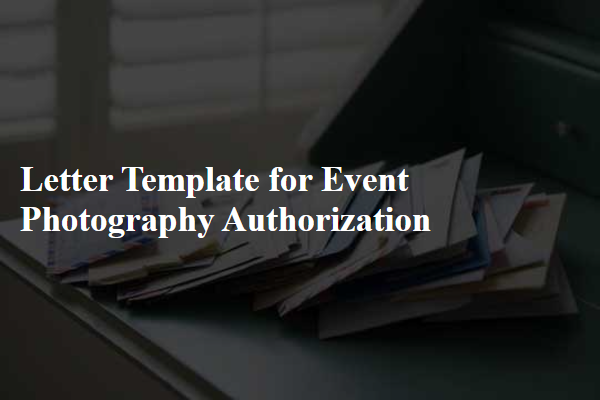
Purpose and Scope
Event photography authorization is a formal agreement that grants photographers permission to capture images during specific events such as weddings, corporate gatherings, or festivals. This authorization often clarifies the photographer's role, outlining the type of coverage expected, including candid shots, group portraits, and key moments. It is essential for defining the scope of usage rights for the images, detailing which mediums the photographs will appear in, such as social media platforms, promotional materials, or personal portfolios. Event organizers must ensure participants are aware of photography taking place, providing them an opportunity to opt-out if necessary. This kind of authorization fosters a respectful environment while enabling photographers to operate within clear guidelines.
Event Details
Event photography authorization requires specific details to ensure both parties understand the terms and conditions. The event name, such as "Annual Charity Gala," can define the occasion's nature. The date, for instance, "August 15, 2024," signifies when the event takes place, while the venue, such as "Grand Oak Banquet Hall in Springfield," provides the location context. Additionally, specifying the time frame, like "6 PM to 11 PM," outlines when photography may occur. Details concerning the purpose of photography--such as promotional materials, social media posts, or event documentation--should clarify the usage rights of the images. Furthermore, necessary contact information for the event organizer, like "Jane Doe, Event Coordinator," ensures effective communication. Any required permissions, restrictions, or expectations regarding guest privacy can enhance the authorization process.
Authorization Statement
Event photography captures memorable moments at gatherings such as weddings, corporate functions, or community festivals. An authorization statement serves as a written agreement granting photographers permission to document and use images from these events. Key details include the event name, date, location (such as a specific venue or city), and the names of individuals granting permission. This statement protects photographers legally, allowing them to showcase their work in portfolios or social media. Proper authorization ensures respect for privacy while promoting creativity in documenting significant life events, enhancing the overall experience for both organizers and attendees.
Image Usage Rights
Event photography often involves capturing significant moments at various gatherings, such as weddings, corporate events, or public festivals. Photographers must obtain image usage rights for distributing and using photographs taken during these events. A clear authorization document is essential, outlining specifics like the event date, location, and all parties involved. The agreement should specify the scope of use, including social media sharing, promotional materials, and other public displays. This protects the interests of both the photographer and event participants, ensuring that the rights to reproduce and distribute images are clearly defined. Proper authorization fosters trust and respect among all parties, encouraging future collaborations in creative endeavors.
Signatory and Date
Event photography authorization enables photographers to capture images during significant occasions, such as weddings, corporate events, or community festivals. This permission usually includes the name of the event (e.g., Annual Charity Gala), location (e.g., City Hall, Main Auditorium), planned dates (for instance, March 15, 2024), and specific guidelines related to photography rights (like distribution, usage in marketing materials). Such authorizations often require a signatory (an authorized representative from the organization hosting the event), along with a date to affirm when consent was granted, ensuring clarity and legal compliance for both parties involved in the agreement.

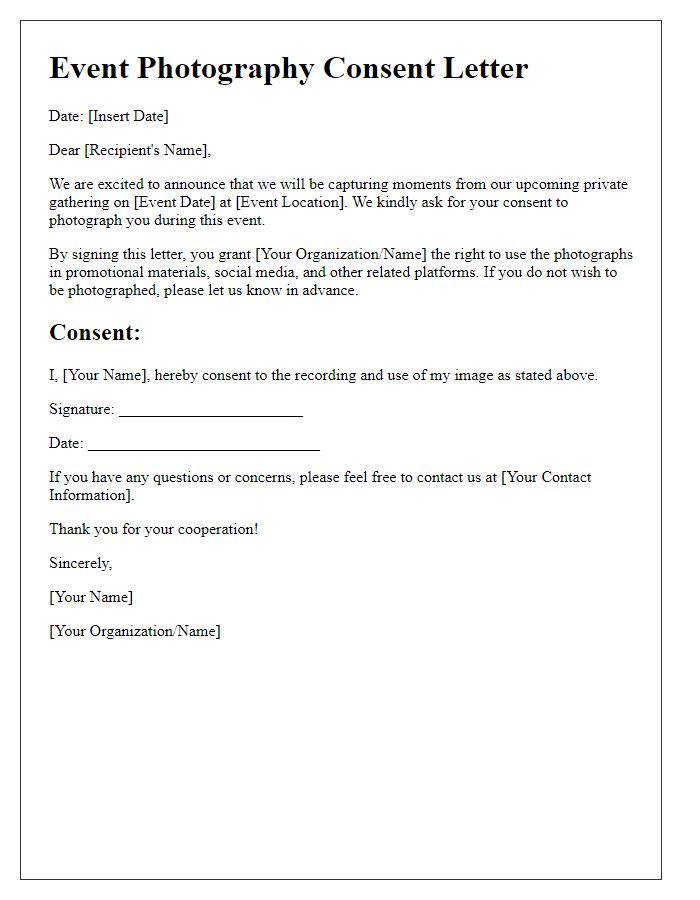
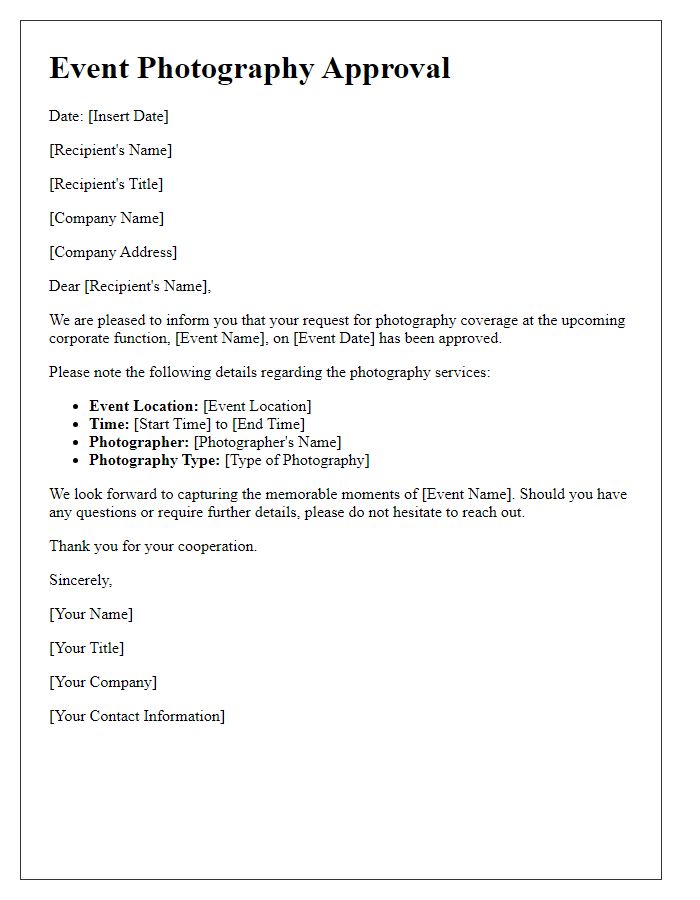
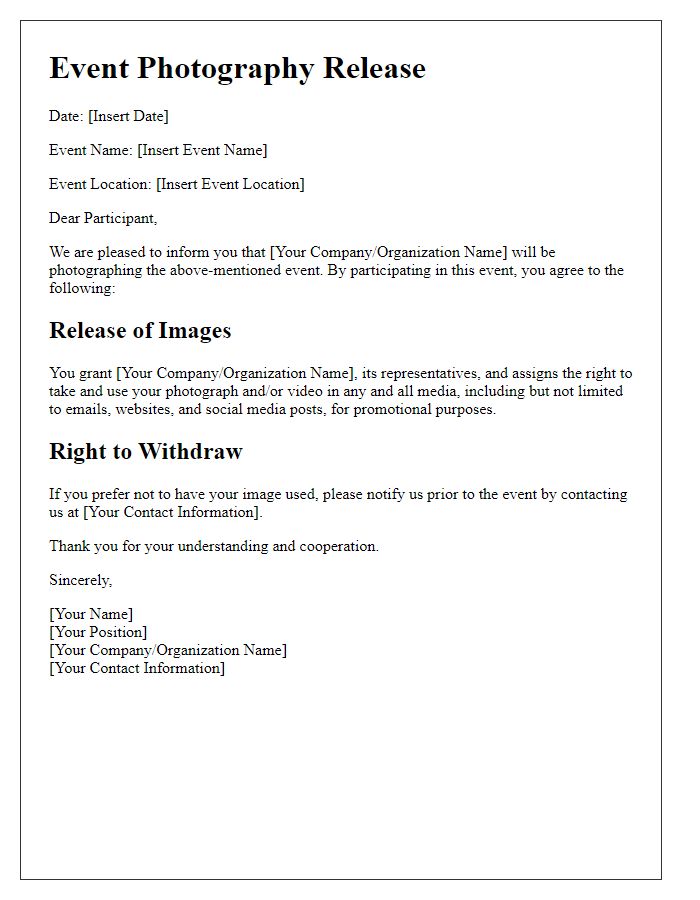
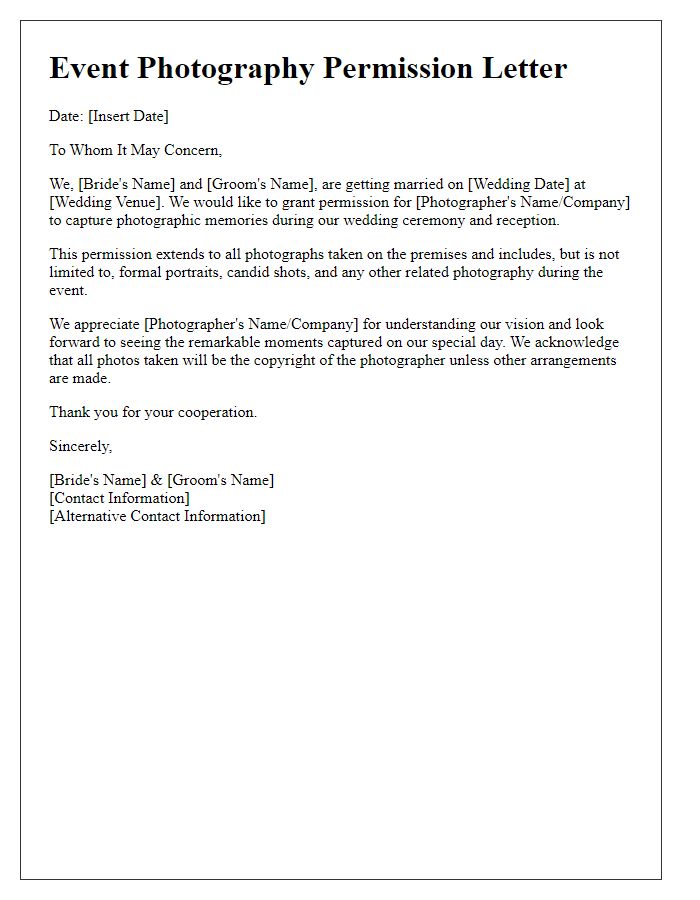
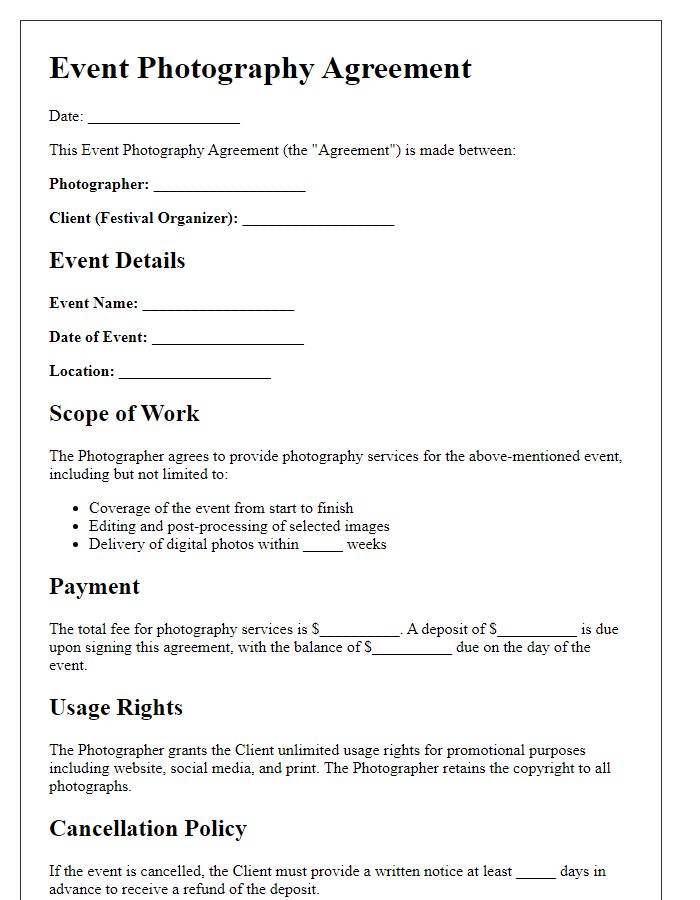
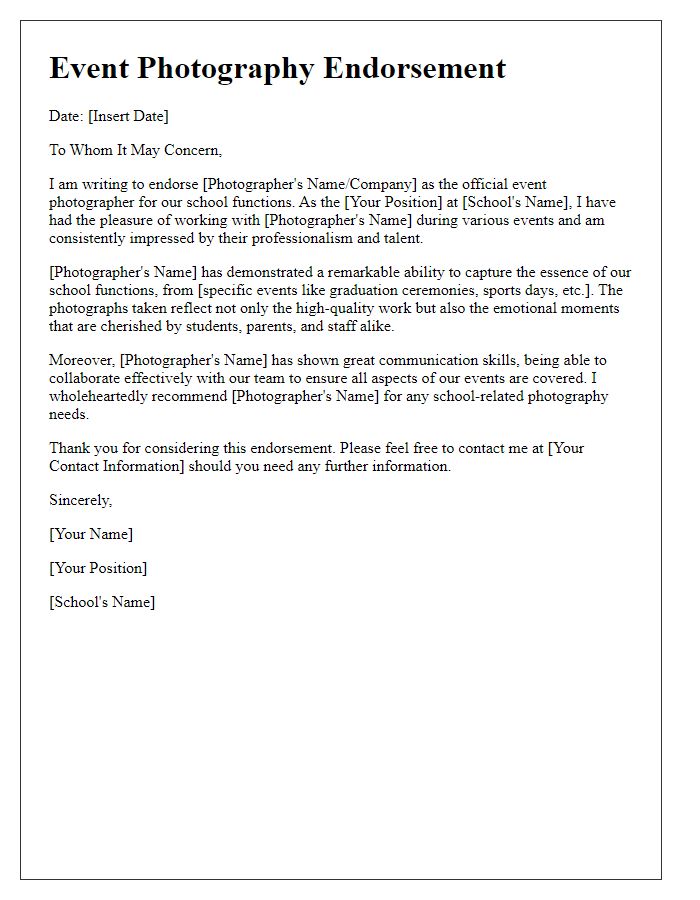
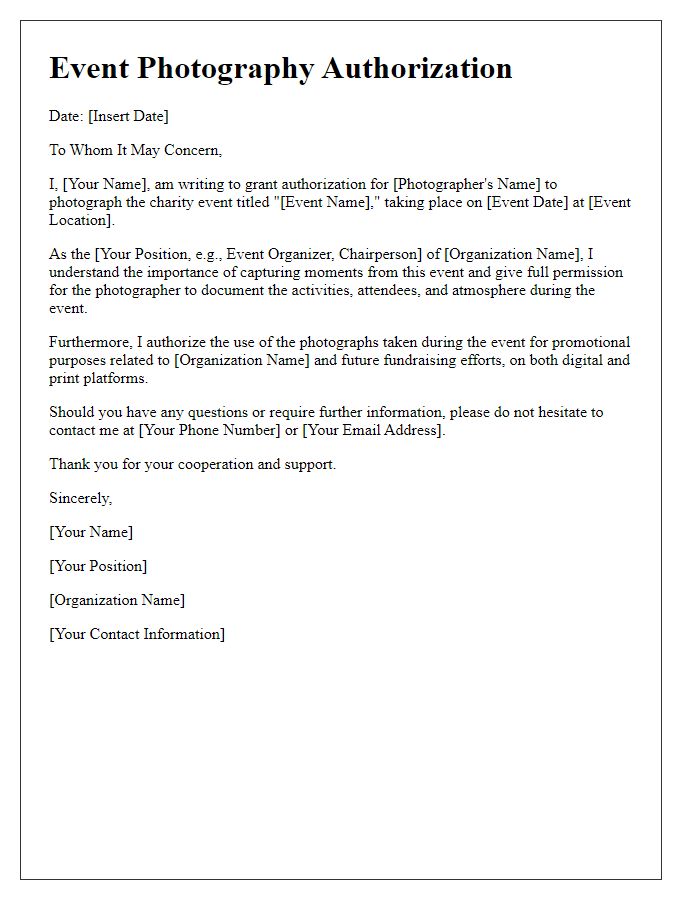
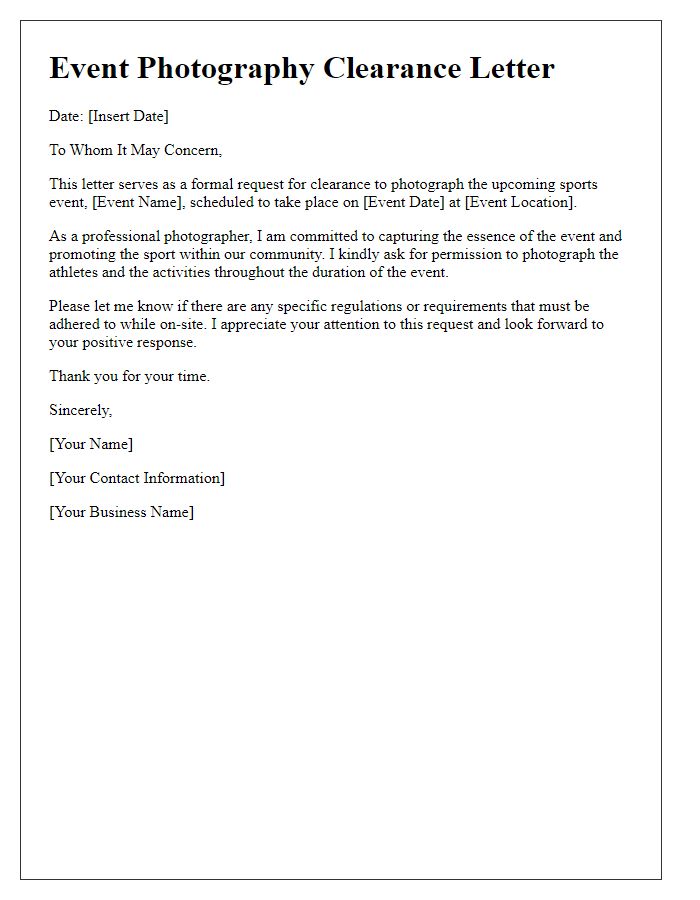
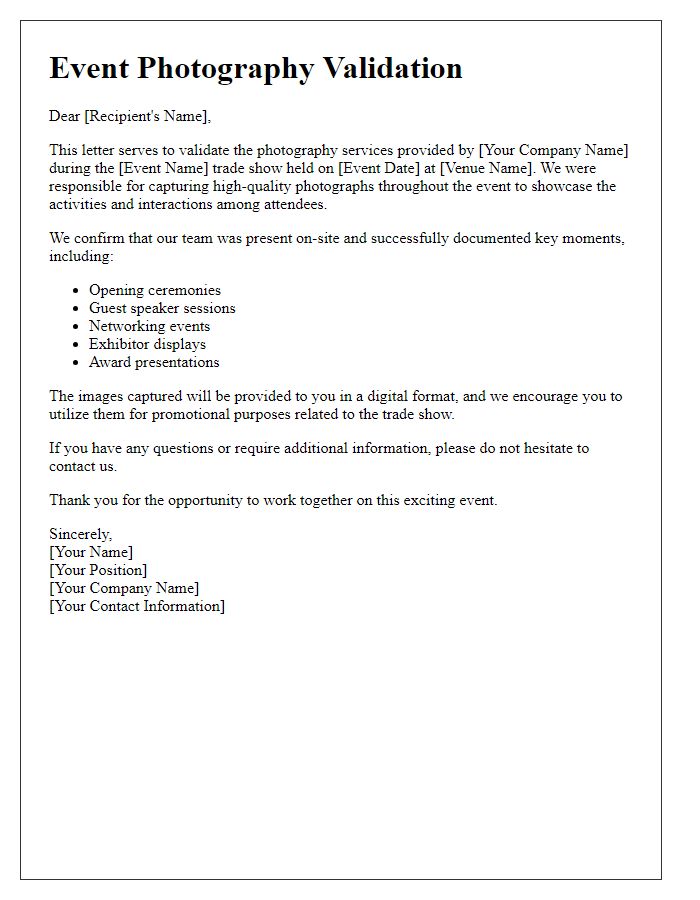
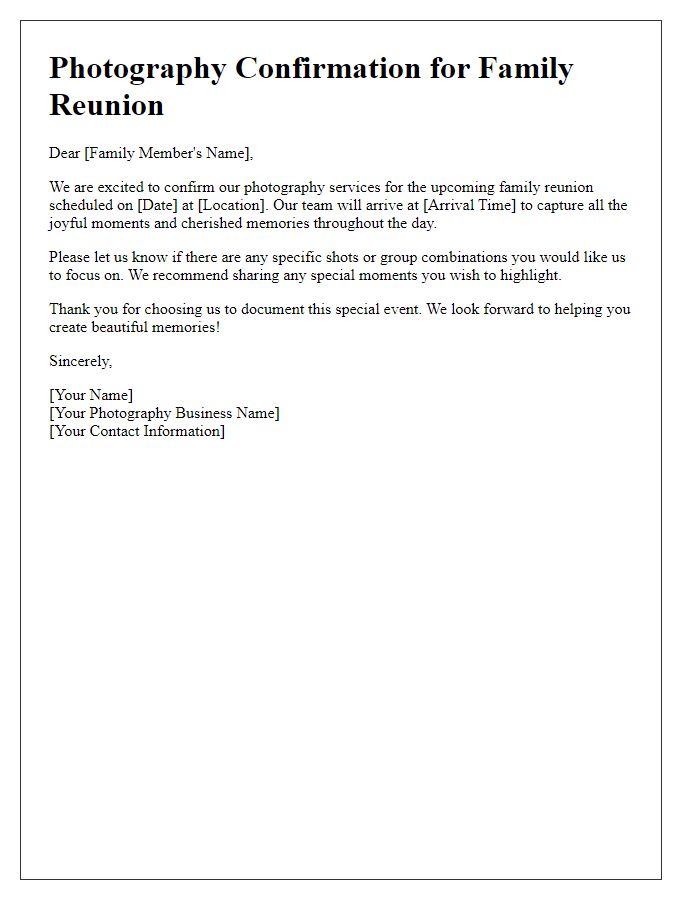

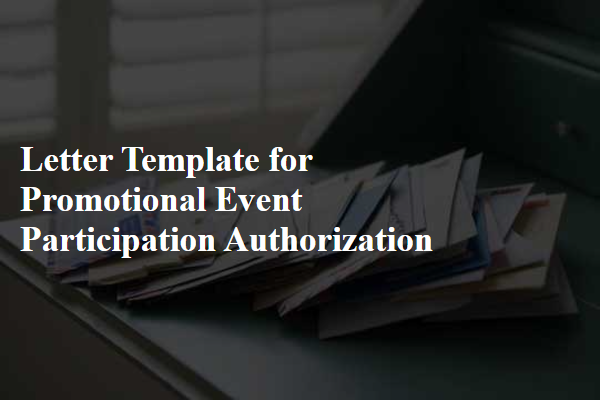
Comments